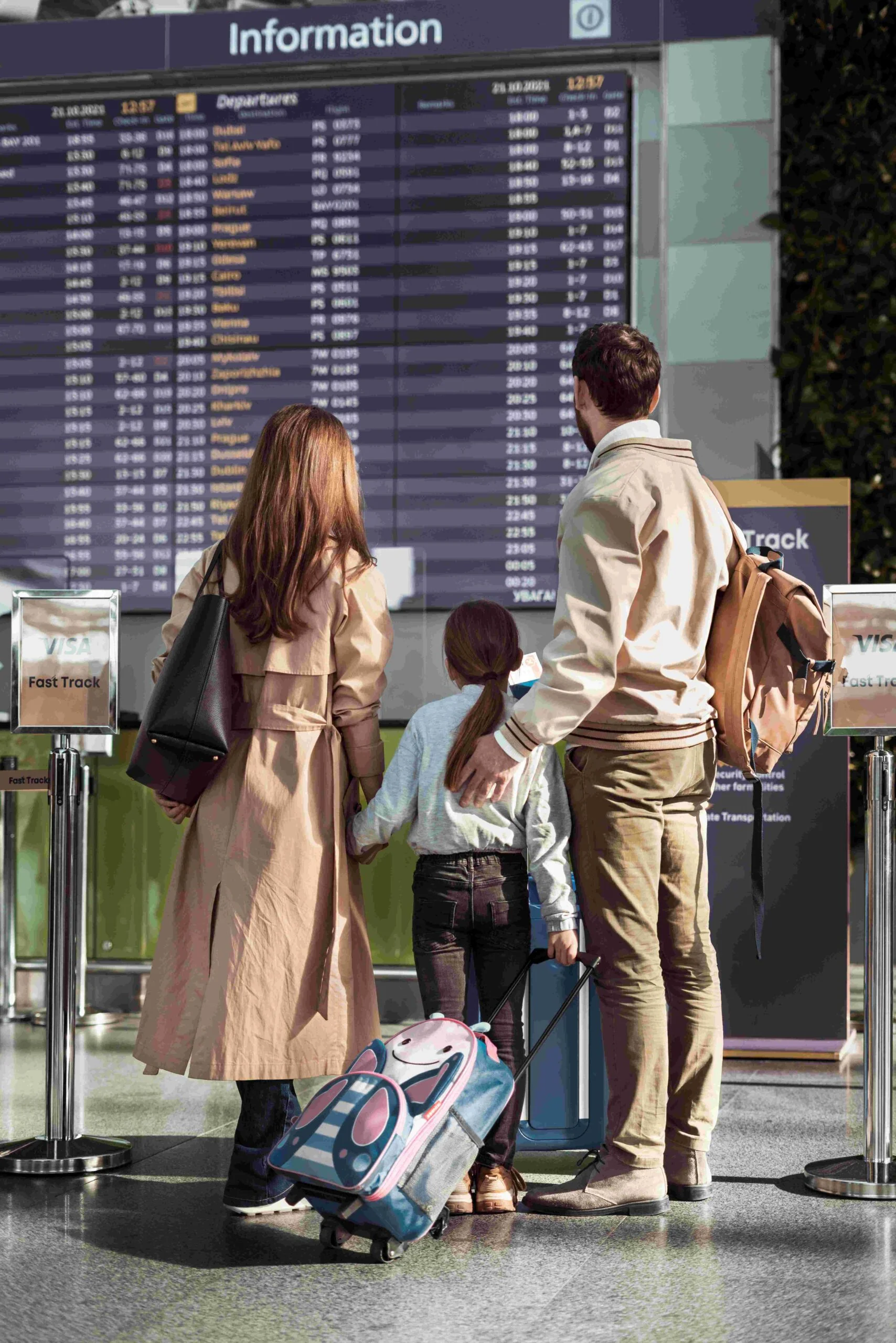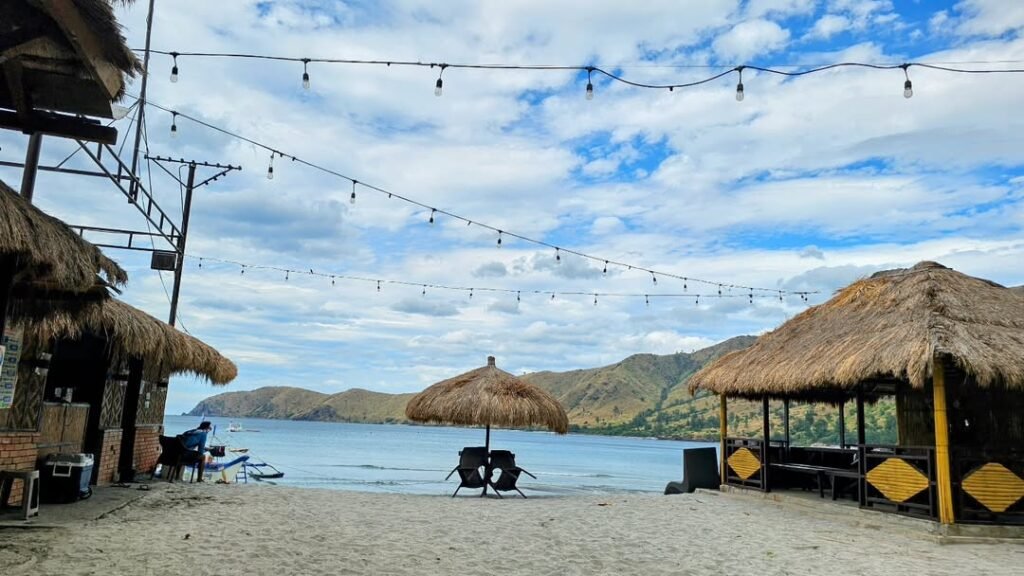
Basic Travel Requirements for Filipinos Departing the Philippines
When planning to travel abroad, it is essential to understand and comply with the “Philippine Immigration Departure Requirements.” Meeting these requirements ensures a smooth departure process. Here are the basic travel requirements for Filipinos:
Passport Validity
Your passport must be valid for at least six months beyond your date of departure. This is a standard requirement for most countries to ensure travelers can complete their trips without passport issues.
Boarding Pass
A boarding pass is required for entry into the departure area and for boarding your flight. Ensure you have a printed or digital copy of your boarding pass.
Appropriate Visa
If your destination country requires a visa, make sure you have the correct type of visa that corresponds to your purpose of travel. This could include tourist, business, student, or work visas.
Confirmed Return or Roundtrip Ticket
Some countries require proof of a confirmed return or roundtrip ticket to ensure that you will leave the country after your visit. This is also checked by immigration officers in the Philippines.
By ensuring these documents are in order, you can meet the essential “Philippine Immigration Departure Requirements” and facilitate a hassle-free departure.
Table of Contents
Proof of Financial Capacity
As part of the “Philippine Immigration Departure Requirements,” travelers may be required to demonstrate proof of financial capacity. This is to ensure that individuals have sufficient funds to support themselves during their stay abroad, preventing issues such as overstaying due to financial difficulties.
When is Proof of Financial Capacity Required?
Proof of financial capacity is often required under specific circumstances, such as:
Tourist Visa Applications: When applying for a tourist visa, embassies and consulates typically require proof of financial capacity to ensure that the applicant can cover their expenses while traveling.
Immigration Inspections: During the immigration departure process, officers may request proof of financial capacity, especially for self-funded travelers.
Extended Stays: If you plan to stay abroad for an extended period, additional proof of financial stability might be necessary.
Documents That May Be Requested
The documents that can be presented as proof of financial capacity include:
- Bank Statements: Recent bank statements (typically from the last three to six months) showing sufficient balance and regular transactions.
- Credit Card Statements: Statements indicating available credit limits and recent transactions.
- Income Tax Returns: Recent income tax returns can serve as proof of steady income.
- Employment Certificate: An employment certificate from your current employer, stating your position, salary, and duration of employment.
- Pay Slips: Recent pay slips demonstrating regular income.
- Investment Statements: Statements from investments such as stocks, bonds, or mutual funds, indicating financial stability.
Supporting Documents for Different Categories of Travelers
Different categories of travelers have specific document requirements as part of the “Philippine Immigration Departure Requirements.” Here, we outline the necessary supporting documents for self-funded travelers, those sponsored by relatives or non-relatives, and first-time Overseas Filipino Workers (OFWs).
Self-Funded Travelers
Self-funded travelers need to provide comprehensive documentation to prove their travel plans and financial capacity.
- Proof of Accommodation: Hotel bookings, Airbnb reservations, or any other proof of accommodation.
- Financial Capacity: Bank statements, credit card statements, or any other proof of financial capacity.
- Source of Income: Employment certificate, pay slips, or business registration documents if self-employed.
- Travel Itinerary: A detailed travel itinerary, including flights, accommodation, and planned activities.
Travelers Sponsored by a Relative
If a relative is sponsoring your trip, you need to provide documents to establish the relationship and the sponsor’s financial capacity.
- Birth/Marriage Certificates: To prove the relationship with the sponsor.
- Sponsor’s Passport and Visa/Residence Permit: Copies of the sponsor’s passport and visa or residence permit.
- Affidavit of Support: A notarized affidavit of support from the sponsor, stating their commitment to support the traveler financially.
- Proof of Sponsor’s Financial Capacity: The sponsor’s bank statements, employment certificate, or income tax returns.
Travelers Sponsored by a Non-Relative
When the sponsor is not a relative, more stringent documentation is typically required.
- Notarized Affidavit of Support: A notarized document outlining the sponsor’s commitment to support the traveler.
- Document Establishing Relationship: Any document that can prove the relationship between the traveler and the sponsor, such as correspondence or photos.
- Sponsor’s Financial Documents: Bank statements, income tax returns, or employment certificates of the sponsor.
First-Time Overseas Filipino Workers (OFWs)
First-time OFWs have specific requirements to ensure they are authorized to work abroad.
- Overseas Employment Certificate (OEC): An OEC issued by the Philippine Overseas Employment Administration (POEA) to certify that the OFW is registered.
- Valid Employment Visa/Permit: The visa or permit issued by the destination country allowing the OFW to work.
- Employment Contract: A valid employment contract outlining the terms and conditions of employment.
By understanding and preparing these documents, travelers can ensure they meet all “Philippine Immigration Departure Requirements,” facilitating a smoother departure process. This comprehensive preparation helps avoid delays and complications, making the journey more seamless and enjoyable.

Immigration Inspection Process
Navigating the immigration inspection process is a crucial part of fulfilling the “Philippine Immigration Departure Requirements.” This process ensures that all departing passengers comply with immigration regulations and possess the necessary documents for travel.
Primary Inspection Duration
The primary inspection is the initial screening where immigration officers check the passenger’s documents. This usually takes a few minutes, depending on the completeness and accuracy of the documents presented.
During this stage, the officer will:
- Verify the validity of the passport and visa.
- Check the boarding pass and return or roundtrip ticket.
- Ensure that any required visas for the destination country are valid and appropriate for the traveler’s purpose.
Secondary Inspection Duration
In some cases, travelers may be subject to a secondary inspection, which is more thorough and detailed. This can occur if:
The primary inspection reveals discrepancies or insufficient documentation.
The traveler’s profile matches certain risk factors for overstaying or other issues.
Secondary inspections can take longer, ranging from a few minutes to over an hour, depending on the complexity of the situation and the documents required for verification.
Extraordinary Circumstances
Certain extraordinary circumstances may necessitate additional scrutiny. These can include:
Traveling with minors not your own child, which may require a DSWD clearance.
Passengers flagged by the immigration system for previous violations or derogatory records.
Travelers should be prepared for these possibilities by having all relevant documents organized and ready for presentation.

Affidavit of Support and Guarantee
An Affidavit of Support and Guarantee is often required as part of the “Philippine Immigration Departure Requirements” for travelers who are sponsored by someone else, whether a relative or a non-relative. This document serves as a formal declaration that the sponsor will financially support the traveler during their stay abroad.
An Affidavit of Support and Guarantee is a legal document wherein the sponsor pledges to cover the travel expenses and provide financial assistance to the traveler. This is especially necessary when the traveler does not have sufficient financial capacity of their own.
When is it Required?
This affidavit is typically required in the following situations:
Sponsored Travelers: When the trip is financially supported by a relative or a non-relative.
Visa Applications: Some countries require this document as part of the visa application process to ensure that the traveler will not become a financial burden on the state.
Immigration Inspections: During departure, immigration officers may ask for this document to verify the traveler’s financial support system.
Sub-keywords: sponsored travelers, visa applications, immigration inspections
Notarization Process
The Affidavit of Support and Guarantee must be notarized to be considered valid. The process involves:
- Drafting the Affidavit: The sponsor must draft the affidavit, clearly stating their commitment to support the traveler financially.
- Gathering Supporting Documents: The sponsor should provide proof of financial capacity, such as bank statements, employment certificates, or income tax returns.
- Visiting a Notary Public: The sponsor must take the affidavit and supporting documents to a notary public for notarization.
- Signing the Affidavit: The sponsor signs the affidavit in the presence of the notary, who then affixes their seal and signature to validate the document.
By understanding and preparing the necessary documents for both the immigration inspection process and the Affidavit of Support and Guarantee, travelers can ensure they meet all “Philippine Immigration Departure Requirements.” This preparation helps facilitate a smoother and more efficient departure experience.
DSWD Clearance
As part of the “Philippine Immigration Departure Requirements,” a DSWD clearance is necessary for certain travelers, particularly when minors are involved. The Department of Social Welfare and Development (DSWD) issues this clearance to ensure the welfare and safety of children traveling abroad.
A DSWD clearance is an official document that grants permission for a minor to travel internationally. It is required to prevent child trafficking and ensure that the child is traveling under legitimate and safe circumstances.
When is it Required?
A DSWD clearance is required in the following situations:
Minors Traveling Alone: Children under 18 years old who are traveling alone need a DSWD clearance.
Minors Traveling with Non-Parents: If the minor is traveling with someone other than their parent or legal guardian, such as a relative or family friend.
Special Circumstances: In cases of child custody disputes or other legal issues involving the minor.
Sub-keywords: minors traveling alone, minors traveling with non-parents
Traveling with Minors Not Your Own Child
When traveling with a minor who is not your own child, the following steps are necessary to obtain a DSWD clearance:
- Secure an Affidavit of Support and Consent: This document must be signed by the parents or legal guardians, granting permission for the minor to travel with another person.
- Prepare the Minor’s Birth Certificate: A copy of the minor’s birth certificate is required to establish the child’s identity.
- Submit to the DSWD: The affidavit, birth certificate, and any other supporting documents must be submitted to the nearest DSWD office.
- Interview and Assessment: The DSWD may conduct an interview and assess the documents to ensure the child’s safety and the legitimacy of the travel.
By ensuring you have a DSWD clearance when necessary, you comply with the “Philippine Immigration Departure Requirements” and help protect the welfare of minors.
Overseas Employment Certificate (OEC)
For Overseas Filipino Workers (OFWs), obtaining an Overseas Employment Certificate (OEC) is a crucial step in meeting the “Philippine Immigration Departure Requirements.” This document certifies that the OFW is legally employed and registered with the Philippine Overseas Employment Administration (POEA).
An Overseas Employment Certificate (OEC) is an official document issued by the POEA. It serves as proof that the holder is a registered OFW and is exempt from paying travel tax and airport terminal fees.
When is it Required?
The OEC is required in the following situations:
First-Time OFWs: All first-time OFWs must secure an OEC before departing the Philippines.
Returning OFWs: OFWs who are returning to their employers after a vacation or those who are transferring to a new employer abroad.
Sub-keywords: first-time OFWs, returning OFWs
OFWs Departing the Philippines for the First Time
For first-time OFWs, obtaining an OEC involves several steps to ensure compliance with “Philippine Immigration Departure Requirements”:
- Attend the Pre-Employment Orientation Seminar (PEOS): This seminar provides essential information about working abroad and is mandatory for all first-time OFWs.
- Register with the POEA: First-time OFWs must register with the POEA and submit necessary documents, including a valid employment contract, passport, and visa.
- Undergo Medical Examination: A medical exam is required to ensure the OFW is fit to work abroad.
- Secure the OEC: After completing the requirements, the OFW can apply for the OEC online through the POEA’s Balik-Manggagawa Online Processing System or at a POEA office.
By securing an OEC, OFWs fulfill an essential part of the “Philippine Immigration Departure Requirements,” ensuring their legal and protected status as overseas workers.
Hold Departure Order (HDO)
A Hold Departure Order (HDO) is a significant aspect of the “Philippine Immigration Departure Requirements.” It is issued by the Bureau of Immigration (BI) or other government agencies to prevent individuals from leaving the country under certain legal circumstances.
A Hold Departure Order (HDO) is an official directive that restricts an individual from departing the Philippines. It is usually issued in connection with ongoing legal cases or criminal investigations.
Lifting an HDO
If an individual has been issued an HDO, they must follow specific procedures to lift the order and be allowed to travel abroad.
- Filing a Request with the Bureau of Immigration: The affected individual must submit a formal request to the BI, providing justifications and necessary documents to support the lifting of the HDO.
- Court Clearance: If the HDO is related to a court case, a clearance or order from the court indicating that the individual is allowed to travel may be required.
- Compliance with Legal Requirements: The individual must ensure compliance with any legal requirements or settlements related to the HDO.
Filing a Request with the Bureau of Immigration
To file a request for lifting an HDO, the following steps are typically involved:
- Prepare Necessary Documents: Collect all required documents, including a written request, legal clearances, and any relevant court orders.
- Submit to BI: Submit the documents to the BI office handling HDO cases. It is advisable to seek legal counsel to ensure all documents are in order.
- Follow Up: Regularly follow up with the BI to track the progress of the request and provide any additional information if requested.
Understanding and addressing an HDO promptly ensures compliance with “Philippine Immigration Departure Requirements” and helps resolve travel restrictions efficiently.
Blacklist Order (BLO)
A Blacklist Order (BLO) is another critical component of the “Philippine Immigration Departure Requirements.” It involves a formal prohibition preventing specific individuals from entering or leaving the Philippines due to various reasons.
A Blacklist Order (BLO) is an official order issued by the Bureau of Immigration to ban an individual from entering or exiting the Philippines. This can be due to violations of immigration laws, involvement in criminal activities, or other legal issues.
Lifting a BLO
Individuals who have been issued a BLO can take steps to lift the order and restore their travel privileges.
- Filing a Request with the Bureau of Immigration: Similar to the HDO process, a formal request must be submitted to the BI, accompanied by supporting documents and explanations.
- Clearance from Relevant Authorities: Obtaining clearance from relevant authorities, such as law enforcement agencies or courts, may be necessary to demonstrate that the reasons for the BLO have been resolved.
- Compliance with Legal Requirements: Ensuring all legal obligations or penalties associated with the BLO are fulfilled is crucial for the order to be lifted.
Filing a Request with the Bureau of Immigration
To file a request for lifting a BLO, the following steps are typically required:
- Prepare Necessary Documents: Gather all required documents, including a written appeal, legal clearances, and any relevant court orders.
- Submit to BI: Submit the documents to the appropriate BI office. Legal advice may be beneficial to ensure the submission is complete and accurate.
- Follow Up: Regularly check with the BI on the status of the request and provide additional information if necessary.
Importance of Addressing HDO and BLO
Addressing a Hold Departure Order or Blacklist Order promptly is vital for complying with “Philippine Immigration Departure Requirements.” Failure to resolve these orders can lead to significant travel restrictions and legal complications. By understanding the procedures and proactively addressing any HDO or BLO, travelers can ensure they meet all necessary immigration requirements and enjoy a hassle-free departure.
By providing comprehensive information on HDO and BLO, travelers can better understand their rights and responsibilities, facilitating smoother travel experiences and adherence to “Philippine Immigration Departure Requirements.”
Verifying Derogatory Records
As part of the “Philippine Immigration Departure Requirements,” it is essential to verify and clear any derogatory records that may impede your ability to travel. Derogatory records can include Hold Departure Orders (HDO), Blacklist Orders (BLO), and other legal impediments issued by the Bureau of Immigration (BI) or other government agencies.
Derogatory records refer to any legal restrictions or prohibitions placed on an individual that prevent them from leaving the Philippines. These records are typically issued in connection with legal issues, criminal cases, or violations of immigration laws.
Clearance and Certification Section of the Bureau of Immigration
The Clearance and Certification Section of the Bureau of Immigration is responsible for handling requests related to verifying and clearing derogatory records. This section processes applications for the issuance of clearances and certifications that confirm an individual’s status and eligibility to travel.
Documents Required
To verify and clear derogatory records, the following documents are typically required:
- Letter of Request: A formal letter requesting verification and clearance of derogatory records, addressed to the BI.
- Valid Identification: A copy of the individual’s valid passport and any other government-issued ID.
- Supporting Documents: Relevant court orders, legal clearances, or other supporting documents that can help resolve the derogatory record.
- Proof of Payment: Receipt of payment for the processing fee.
Applicable Fees
There are fees associated with the verification and clearance of derogatory records. These fees cover the administrative costs of processing the request and issuing the necessary clearances and certifications. The exact amount can vary, so it is advisable to check with the BI for the latest fee schedule.
Top 5 FAQs About Philippine Immigration Departure Requirements
What are the basic documents required for Filipinos departing the Philippines?
- The basic documents include a passport valid for at least six months beyond the date of departure, a boarding pass, an appropriate visa if required, and a confirmed return or roundtrip ticket.
What is a Hold Departure Order (HDO) and how can it be lifted?
- An HDO is an official directive preventing an individual from leaving the Philippines due to ongoing legal cases or investigations. To lift an HDO, one must file a request with the Bureau of Immigration, provide necessary legal clearances, and comply with any legal requirements.
When is proof of financial capacity required for travel?
- Proof of financial capacity is required when applying for a tourist visa, during immigration inspections for self-funded travelers, and for extended stays abroad. Documents such as bank statements, credit card statements, and employment certificates are typically required.
What is an Overseas Employment Certificate (OEC) and who needs it?
- An OEC is an official document issued by the Philippine Overseas Employment Administration (POEA) that certifies a person as a registered OFW. It is required for all first-time OFWs and returning OFWs to be exempt from paying travel tax and airport terminal fees.
How can I verify and clear any derogatory records with the Bureau of Immigration?
- To verify and clear derogatory records, you need to submit a letter of request, valid identification, supporting documents, and proof of payment to the Clearance and Certification Section of the BI. Following up with the BI and providing any additional information if requested is crucial to ensure a smooth process.





What documents do I have to be issued the Balikbayan visa , my wife is Philippine citizen.
For Family Visit Visa going to Qatar,is it okay the visa only written First and Last Name?
No, unless your passport truly only lists two names.